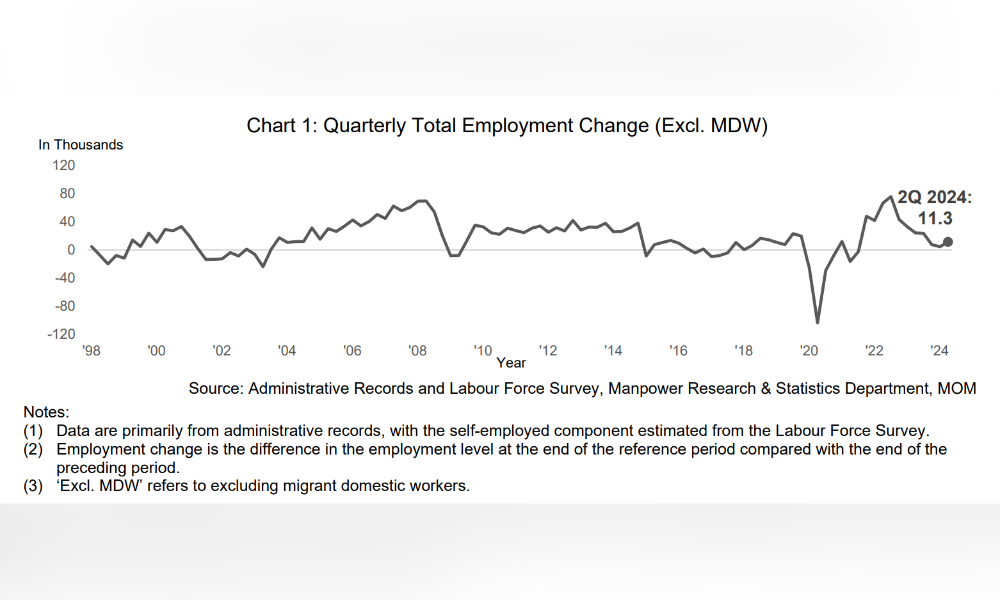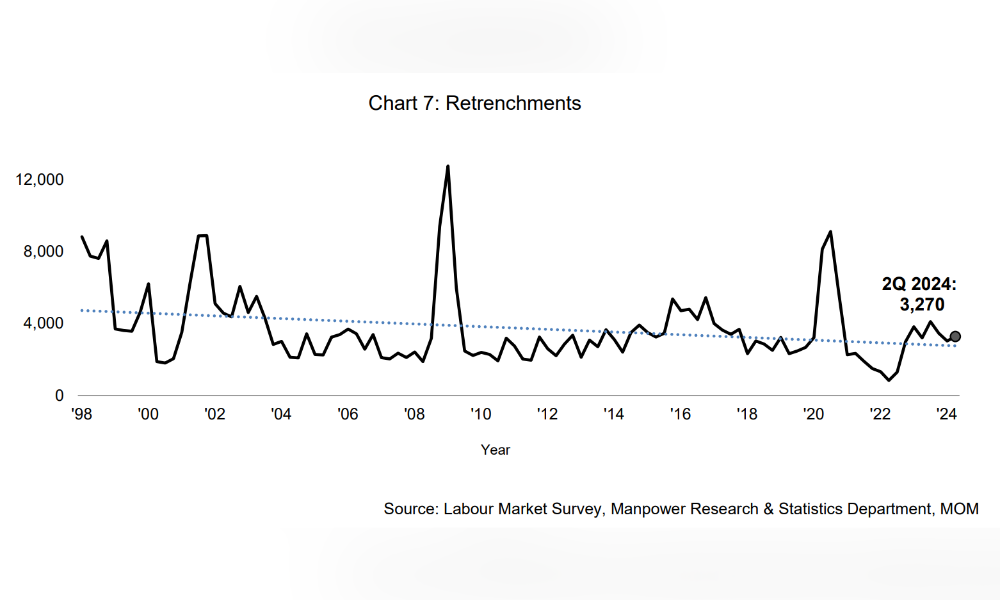
Non-resident employment emerges as sole driver of total employment increase

Total employment growth in Singapore more than doubled in the second quarter of 2024, driven solely by the increase in non-resident employment, according to the latest Labour Market Report.
Total employment grew by 11,300 in Q2, more than double the 4,700-increase registered in the first quarter.
Non-resident employment grew by 12,000, accounting for all the increase during the quarter. On the other hand, resident employment slightly declined by 600.
"In the first half of 2024, total employment grew by 16,000, with both resident and non-resident employment growing by 4,900 and 11,200 respectively," said the Ministry of Manpower in a media release.

Source: Labour Market Report Second Quarter 2024
Singaporean Manpower Minister Tan See Leng said he is "heartened to share" that the labour market continued to perform well.
"In the longer term, our challenge is to sustain a vibrant economy that continues to create good opportunities for Singaporeans as our population ages and local workforce shrinks," Tan said in a Facebook post.
"A strategy is to remain open to global talent and foreign investments."
According to the report, the major increase in non-resident employment was driven by the growth of Work Permit Holders in low-skilled jobs such as Construction and Manufacturing.
These are roles that Singaporean residents "are not keen on," the report read.
For resident employment, the report attributed the marginal drop to seasonal declines in Retail Trade and Administrative & Support Services, which released employees after hiring in earlier months.
However, outward-oriented sectors such as Financial and Insurance Services, Information and Communications, as well as Professional Services saw an increase in resident employment in the second quarter.
Meanwhile, Singapore also saw a slight increase in retrenchments after registering 3,270 cases in the second quarter.
According to the report, the Financial & Insurance Services and Wholesale Trade sectors both logged higher cases of retrenchments during the quarter.
"Across the economy, most firms cited business reorganisation or restructuring in 2Q 2024 as the reason for retrenchment," MOM said. "Retrenchments due to concerns of recession or downturn in the sector have declined, as the local external demand outlook is expected to be resilient for the rest of 2024."

Meanwhile, 55% of employees retrenched in the second quarter were able to find another job within six months after getting laid off, according to the report.
This is slightly down from the 59.4% recorded in the first quarter, reflecting a downward trend in re-entry rates over the years.
"This could reflect individual preferences to take more time to seek out or train for better jobs, rather than job search difficulties," the report read.
The Singaporean government recently unveiled a new SkillsFuture Jobseeker Support scheme that will extend financial support worth $6,000 to employees who have been retrenched by employers.
Prime Minister Lawrence Wong said the financial support can be used by employees for training, career coaching, job-matching services, and other "essential investments" to help them find better jobs.